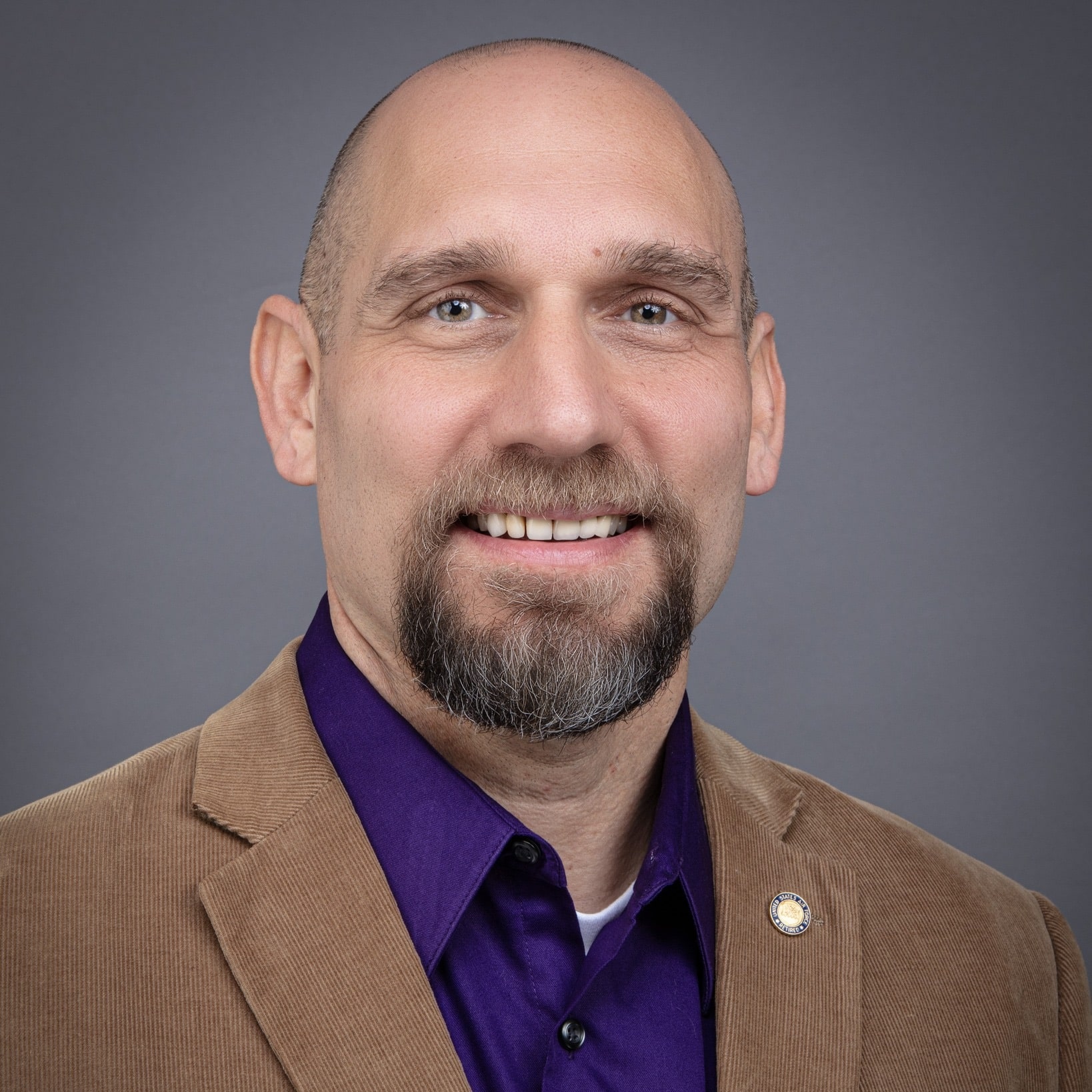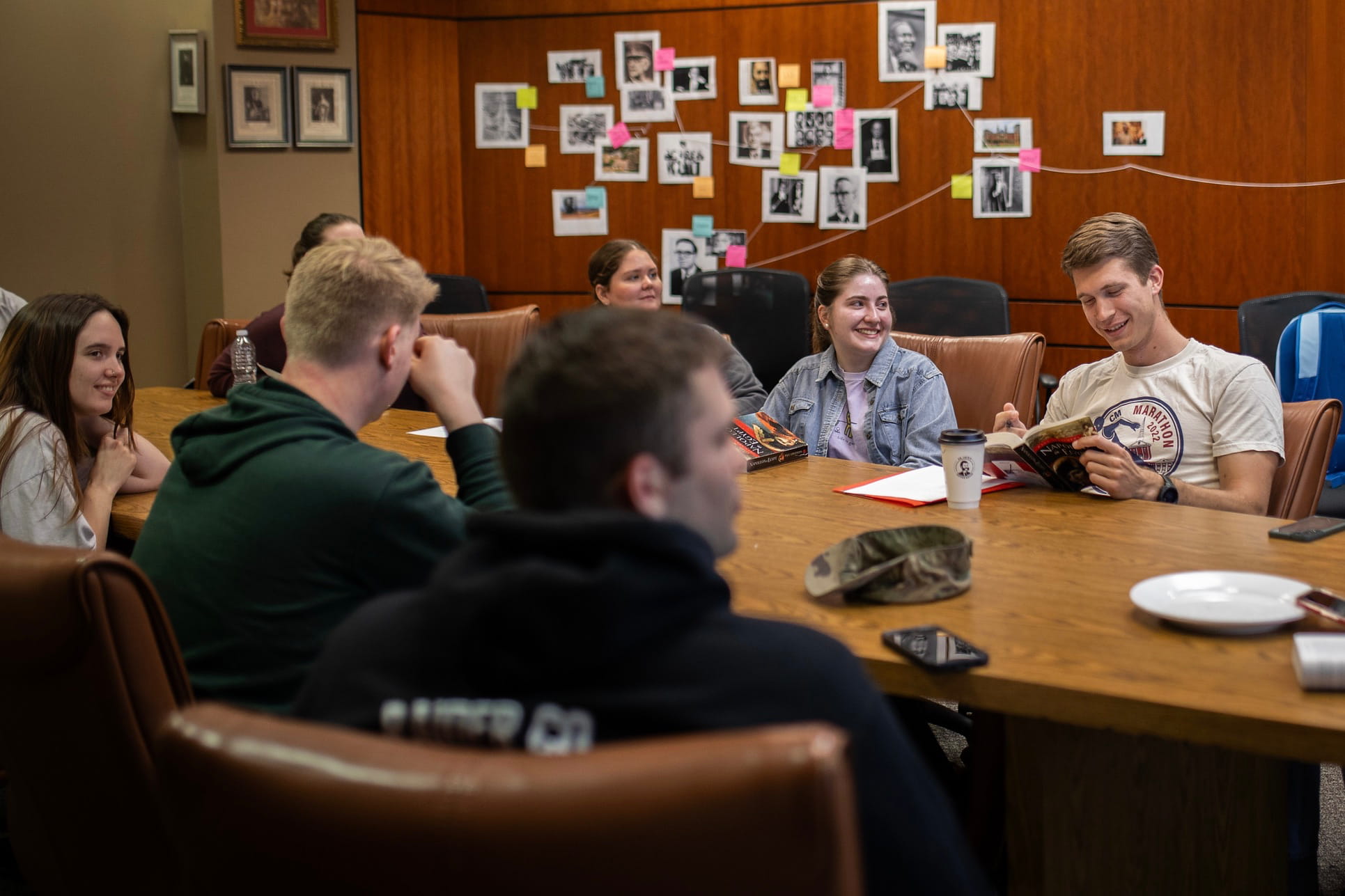Keeping Kids Safe in the Digital World: What Every Parent Should Know
 October 30, 2025
- Scott Anderson
October 30, 2025
- Scott AndersonAt Ouachita, we recently launched a cybersecurity major because we know this field isn’t going away. It’s only increasing in demand and importance, and since October is Cybersecurity Awareness Month, now is the perfect time to talk about something that matters to all of us: keeping our kids safe online.
Our children are growing up in a world where screens are everywhere. Phones, tablets, gaming devices — they can get on the internet on almost anything. That gives them unbelievable opportunities to learn and explore but also poses risks we can’t ignore.
Here’s the good news: you don’t need to be a tech expert to protect your family (though we are excited about creating them here at Ouachita!). What matters most is communicating about tech, staying involved, asking questions and helping your kids build healthy digital habits.
Build Trust First
Filters and monitoring tools help, but the strongest safety feature in any home is open communication. Talk frequently with your kids about where they spend their time online:
- “What apps do your friends use?”
- “Anything online recently make you uncomfortable?”
- “If something weird pops up, do you feel like you could tell me? What would you do?”
Kids who trust their parents will come to them when they encounter cyberbullying, predators or scams, which is exactly what we want.
Protect Personal Information
Our kids don’t always think about the risks of oversharing. We need to coach them and learn to do it ourselves.
- Don’t post full names, addresses or school details publicly.
- Be thoughtful with photos. Avoid posting anything that gives away location and turn your camera’s access to location data off.
- Use strong passwords and enable MFA (multi-factor authentication) when available.
And remind them: once something is online, it can be extremely hard to erase, even if it disappears from your device like on Snapchat.
Know the Apps They Use
Every app has different privacy settings, chat features and risks. Make a family rule that new apps must be discussed with parents first.
There are helpful tools like Apple Screen Time, Google Family Link and Bark that allow you to set boundaries appropriate for your child’s age and maturity. Some even alert you to concerning language like threats of self-harm. Be aware that kids are smart, and they may find a way to bypass the tools. I know staying on top of this can feel like a part-time job, but it is important.
Model Healthy Digital Habits
Kids watch what we do more than what we say. Try small but meaningful practices:
- No phones at the dinner table.
- Learn how to protect yourself online and discuss that with your kids.
- Talk to them about strange emails, texts and calls you get.
- Schedule tech-free times for everyone.
This communicates a simple truth: technology is here to stay. Let’s be informed on its risks and opportunities, using it to serve us — not control us.
Suspicion of What You See
Our kids are swimming in a sea of misinformation. Now, AI makes it harder than ever to spot what’s real and what’s fake. Help them ask:
- “Where did this come from?”
- “Why would someone post this?”
- “Can we verify it somewhere else?”
- “Should I share or comment?”
- “Would Jesus post or comment on this?”
Join them in their digital hobbies by watching videos together or playing a game with them. Shared experiences open the door for important conversations.
Empowerment Over Fear
As a cybersecurity instructor and a dad, I’ve seen the difference a proactive family can make. The goal isn’t to scare our kids away from the internet — it’s to equip them to navigate it with confidence and wisdom. The online world is where our children learn, build friendships and discover passions. Let’s make sure they can do all of that safely.
Ouachita is proud to be part of that mission. And hey, if your child ends up loving technology and wants to help protect, defend and serve others someday, we have just the major for them.
Ouachita Baptist University’s cybersecurity program provides preparation for critically important roles in one of the country’s fastest-growing industries. With expert instruction and hands-on experience, students gain expertise in a range of cyber-related areas. For more information, visit obu.edu/cybersecurity or contact the Office of Admissions Counseling at [email protected] or 870-245-5110.

Scott Anderson is an instructor of cybersecurity in the Patterson School of Natural Sciences.
You Also Might Like
Ouachita reports Spring '26 enrollment, led by 50% increase in graduate students
February 11, 2026Recent
Ouachita reports Spring '26 enrollment, led by 50% increase in graduate students
February 11, 2026



